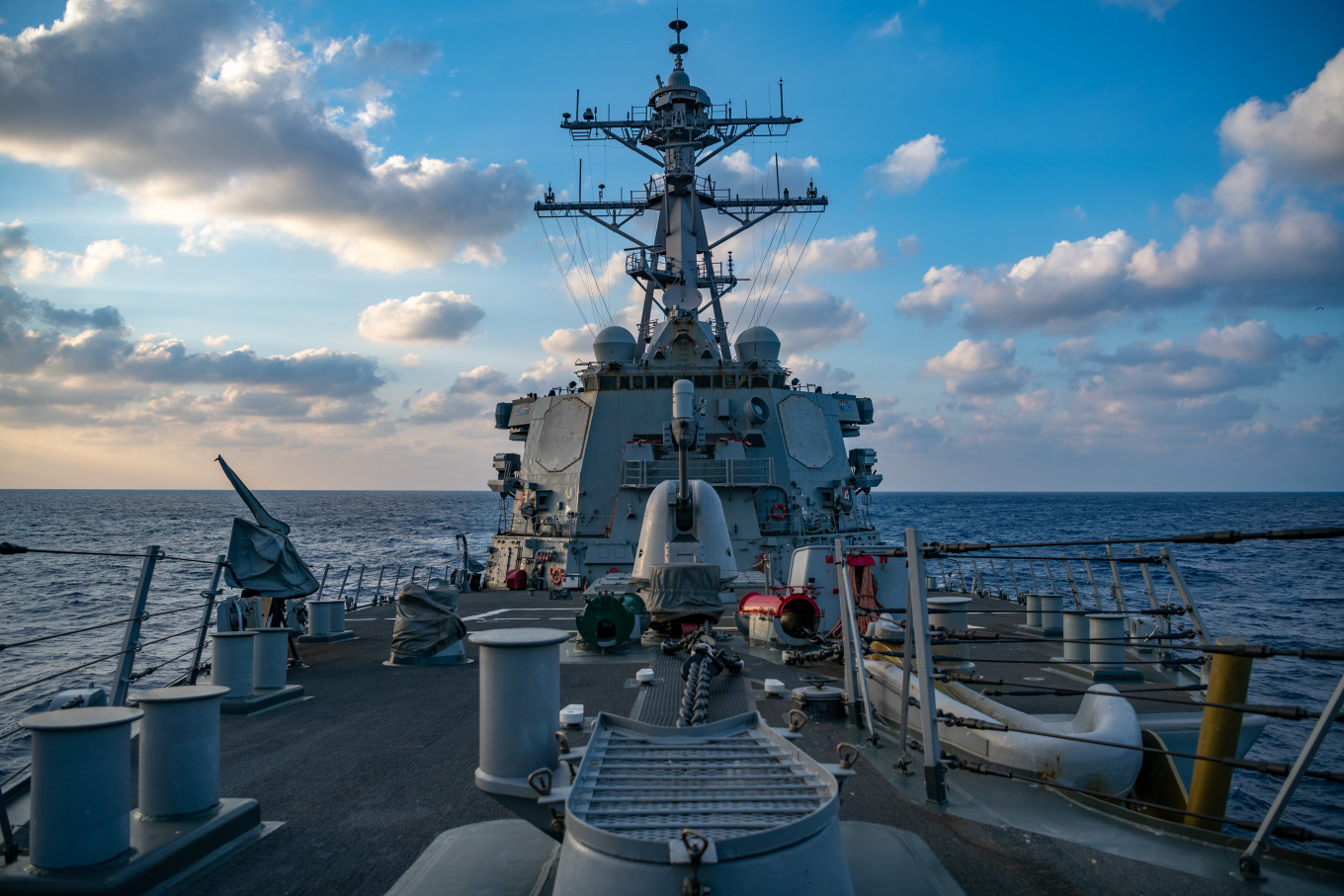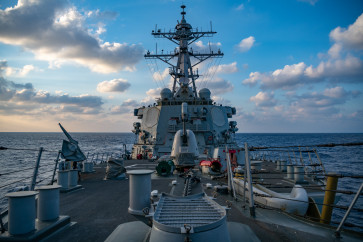Popular Reads
Top Results
Can't find what you're looking for?
View all search resultsPopular Reads
Top Results
Can't find what you're looking for?
View all search resultsTime to turn ASEAN’s Indo-Pacific initiative into security dialogue
It’s time for Indonesia to act, through ASEAN, lest we allow big powers to use the South China Sea, which is right in our backyard, as a theater for their proxy wars.
Change text size
Gift Premium Articles
to Anyone
T
he most disturbing aspect of the growing militarization of the South China Sea these past few years is that the pace is picking up so rapidly that, unless someone puts a stop to it now, we could soon come to a frightening situation of who is going to blink first.
The emerging cold war between China and the United States is being fought in part, if not primarily, in these strategic international waters. The past year saw reported standoffs between the naval forces of the two powers and skirmishes pitting China against the Philippines, Vietnam or Indonesia. Each time this has happened, the sides involved have shown the restraint to prevent an escalation. But who can guarantee this will be the case the next time around?
The rhetorical statements from both Beijing and Washington, as well as from some of their allies, have escalated rather than defused the tensions.
Other distant and nearby powers with an interest in protecting in the South China Sea are also building up a military presence and conducting exercises, including Russia and the European Union, as well as Japan, India and Australia. In September, the US announced the formation of a security pact with the United Kingdom and Australia, which includes allowing Australia to acquire nuclear-powered submarines, to patrol the Indo-Pacific region.
It’s time for Indonesia to act, through ASEAN, lest we allow big powers to use the South China Sea, which is right in our backyard, as a theater for their proxy wars.
The ASEAN Outlook on the Indo-Pacific (AOIP), which its leaders signed in 2019, has gained widespread acceptance from the big powers, including China and the US, that the time is ripe for the regional grouping to raise the ante and initiate a security dialogue.
None exists for the Indo-Pacific region, understandably, because it is a geopolitical concept that has evolved only in the last decade to reflect today’s geopolitical reality. Beijing is still reluctant to use the term, preferring the old Asia-Pacific concept, but it is slowly coming around.



















